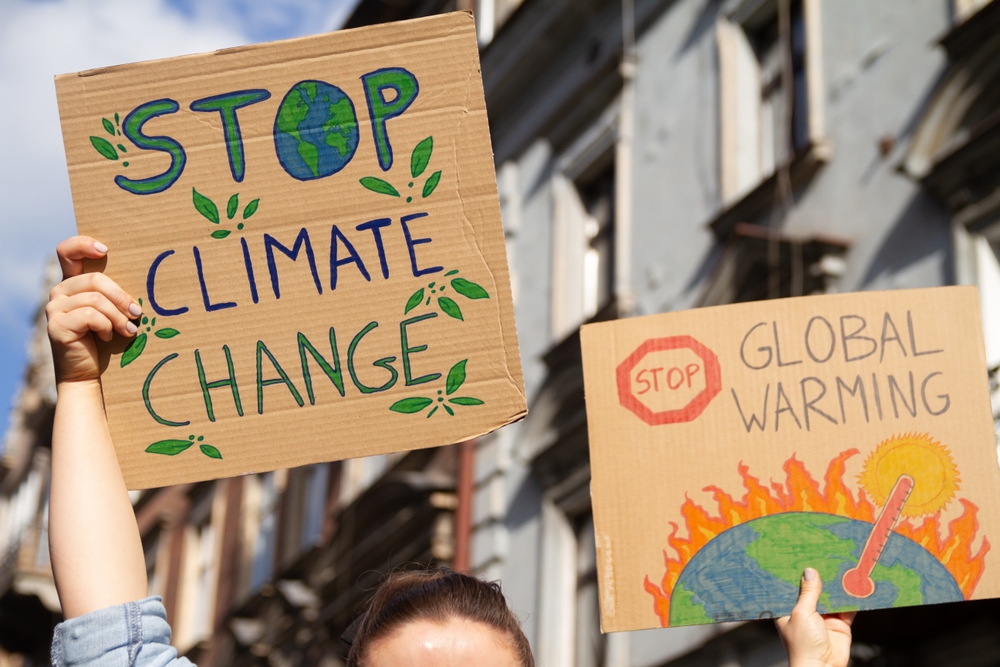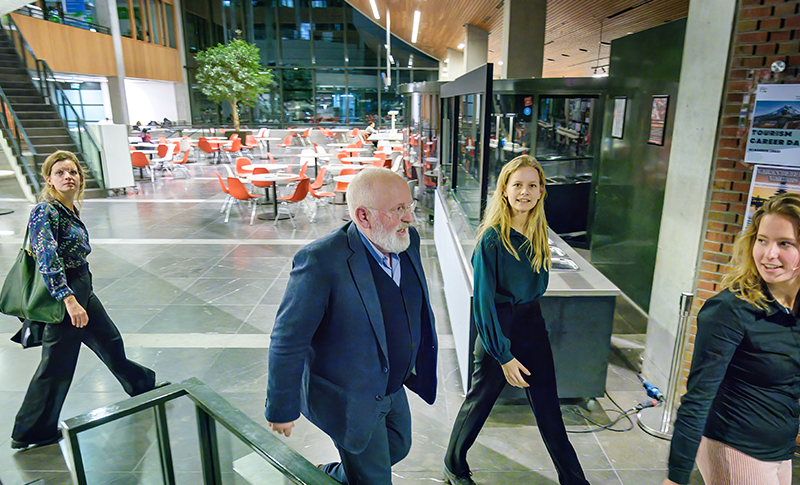Yesterday, the European Court of Human Rights ruled on three climate cases, which were promoted by a group of Swiss elderly women, a group of Portuguese children, and a former French mayor. We asked Chiara Macchi and Nadia Bernaz from the Law Group how they view these decisions and developments.
‘To be honest, I’m a bit surprised that it’s hailed as a massive victory’, says Nadia Bernaz, associate professor Business and Human Rights. ‘To me, the most prominent case was the one brought by Portuguese children against 32 European countries. That one, and also the French mayor one, was rejected. The fact that it was brought by children was truly symbolic.’
Chiara Macchi, assistent professor at the Law Group agrees with her colleague. ‘I’m a bit disappointed as well. There were a lot of new and exciting things about the Portuguese case: it was brought up by children and against so many countries. It was rejected because the claimants did not exhaust domestic remedies in Portugal, and the Court found that jurisdiction could not be established regarding the other respondent states. You have to try and obtain justice at the domestic level before you can go to the European Court. It’s a missed opportunity.’
Mixed feelings
The case with the Swiss elderly, the ‘KlimaSeniorinnen’ was the most successful. Bernaz: ‘Still, their case was also partially rejected because the women who brought the case were also not victims as such within the meaning of Article 34 of the European Convention on Human Rights. They were not personally affected, but the organization that they formed is because they represent wider interests.’
Science is clear about climate change, but the law is now also very clear
Nadia Bernaz, associate professor Business and Human Rights
‘So to be honest, it was a day with mixed feelings’, both Macchi and Bernaz conclude. ‘But despite the fact that these two cases were declared inadmissible, it’s still a big deal. These were the three decisions everybody was waiting for.’ Bernaz: ‘Now it’s been shown that it’s possible to build on the articles of the European Convention of Human Rights, I would be surprised if we didn’t see other examples of strategic climate litigation before this Court.’
Nadia Bernaz: ‘The fact that it’s against Switzerland is also interesting for me. I would say Switzerland is a similar country to the Netherlands. They’re both mid-sized countries. This refutes the argument that if you’re too small, it doesn’t matter what you do.’
Article 8
‘To my knowledge, it’s the first time that the European Court explicitly says that failing to take measures to combat climate change is a violation, by a state party, of its obligations under the Convention’, Macchi clarifies. ‘That failure can constitute a violation of Article 8 of the European Convention on Human Rights, which protects the right to private and family life. It’s not new that the Court connects Article 8 with environmental matters, but it had not ruled on climate change before. It is the first time that the Court says that, indeed, failure to take measures to meet emission reduction targets constitutes a violation of Article 8.’
Urgenda
Bernaz refers the Urgenda case against the Dutch State: in 2019 Urgenda stated that the Dutch State didn’t take sufficient measures against climate change and won the case. ‘The use of Article 8 to tackle climate inaction was also the reasoning in Urgenda. The European Court is following a similar reasoning as the Dutch Court in the Urgenda case.’
‘The parallel with the Urgenda case is interesting’, Macchi confirms. ‘Back then, it was the interpretation of the Dutch court of Articles 2 and 8 of the European Convention. It’s interesting to see that such an important ruling occurred in the Netherlands even before the European Court itself ruled on the link between the Convention’s articles and climate change. Basically, the European Court is now confirming that that link exists.’
Shell
Chiara Macchi: ‘A similar reasoning applied in the case of Milieudefensie against Shell. The Dutch court that ruled on the case in 2021 stated that although no one, in particular, is solely responsible for the climate crisis, everyone must act upon their own limited responsibility. It’s true that Shell alone did not cause climate change, but they did contribute to it, so they have a responsibility to do their part and reduce their own direct and indirect emissions.’
Encouraging
Because of the KlimaSeniorinnen case, we know that the European Court will sanction states that do not act consistently on climate change mitigation. Macchi: ‘This lays the groundwork for future cases, that’s for sure. It’s not just about winning cases, but to trigger change and build some momentum’. Bernaz agrees: ‘From that point of view, these developments are very encouraging. Because science is clear about climate change, the law is now also very clear. If nothing is done, everybody will suffer.’

 Photo Shutterstock
Photo Shutterstock 

